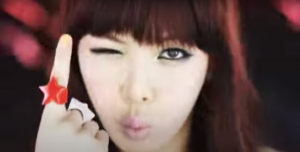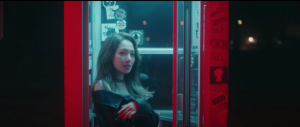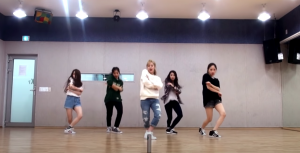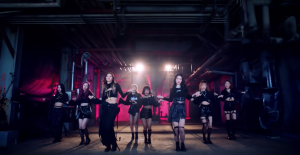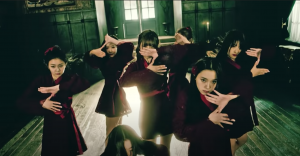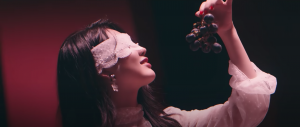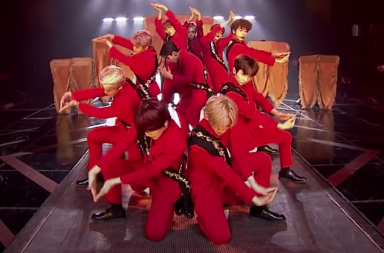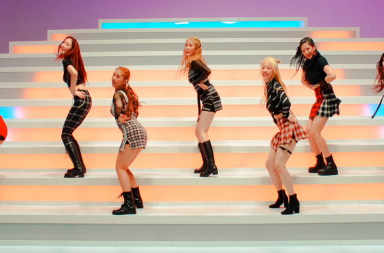The ten-member K-pop girl group Good Day debuted in 2017 with their only mini album All Day Good Day and title track “Rolly“: a bouncy, sunny, retro-inspired romp that, while not groundbreaking, was a promising start for things to come. However, nothing new ever came. In 2019, after no activity for over a year, the group silently disbanded: a fact that wasn’t known until C9 Entertainment announced the debut of a new girl group, Cignature, in November 2019 and revealed that the group was largely made up of half of the members of Good Day. A second group, Redsquare, was announced recently in May 2020, featuring 4 of the remaining Good Day members.
The situation raises the question of what the power of re-debuting truly is — whether or not it can prove to be a positive game-changer for an idol in terms of success, and what factors may influence a re-debut’s outcome.
Cignature debuted in February with their debut single A “Nun Nu Nan Na”— a neon-coloured, synth-based girl crush song and MV. The MV has received over 7 million combined views in 3 months— a far cry from the 3 million Good Day received on their one and only title track, “Rolly”, in almost 3 years. Redsquare debuted just this past week, with the poppy but elegant “Color Full”, and have so far received over 270,000 MV views in 6 days. The debut of these groups is unique in that they are like “sister” groups: from the same company, debuting almost back to back— and, of course, primarily made up of re-debuted members. Although Redsquare’s trajectory is yet to be determined, the Cignature members already found greater success in their re-debut.
For some idols, redebuting has definitely led to a more successful career and greater fame. One of the most well-known examples would be Hyuna, who debuted as a member of Wonder Girls in 2007, standing out amongst the group with a boyish, short haircut and a powerful rapping style. Later in the year, she chose to leave the group due to chronic medical issues. It is entirely possible that Hyuna’s decision to leave what would become one of the greatest groups in K-pop history would have meant leaving behind the highest point of her career — but it was not so.
Hyuna went on to join Cube Entertainment and debut with 4Minute. For their debut song and MV, “Hot Issue”, she grew her hair out and had begun to rap in what would evolve to become her signature “aegyo” style. Ten years later, Hyuna continues to thrive as a solo artist: outliving both of the groups she was in, and most recently releasing the song “Flower Shower”, which peaked at 52 on the Gaon Chart. She remains one of the most popular Kpop soloists to this date.
It is impossible to know what would have happened had Hyuna chosen to stay in Wonder Girls. She could have gone on to achieve the same levels of fame, or the popularity of the other members might have competed with or overshadowed her own. Additionally, it was in 4Minute and under Cube that Hyuna began to develop the rapping style and overall persona she is now known for, which may not have happened otherwise.
Another idol, KARD’s Somin, redebuted not once, but twice, initially debuting with Puretty in Japan in 2012, under DSP Media. The group disbanded in 2014, before making their planned Korean debut. She then debuted with April in August 2015, but left in November of the same year. In 2017, she debuted as a member of the co-ed group KARD.
At the time, April was focusing more on a dreamy, light and sweet concept, but with KARD’s releases, Somin was able to showcase a much more mature image. The difference in styles between the groups, both in terms of music and visual concepts, was likely what led to KARD gaining greater popularity internationally. KARD’s co-ed factor might have also played a hand in piquing the curiosity of international fans.
In Korea, however, KARD has so far failed to make waves. Their highest and only charting song was “Hola Hola“, at 76 on Gaon, and their Korean album sales have also been steadily decreasing — their most recent mini album, Red Moon, has only sold 6,500 copies as of May 2020. At the same time, April’s exploration of synth-pop and dance-pop, starting with their 2018 mini The Ruby, has resulted in their recent mini, Da Capo, selling 9,400 copies in Korea — the highest of any of their albums so far. “Lalalilala”, the title track, is still charting steadily on Gaon. Although Somin did find international success with KARD, had she stayed in April, she might have found success in their growing achievements in Korea. However, whether not she would have found the same level of individual success in a group with a style she suited less is another question.
Other idols who found success through redebuting include EXID’s Solji, who was part of the vocal duo 2NB from 2008 to 2012. Winner’s Mino debuted in 2011 as part of the ballad group BoM, under Y2Y Contents Company, with the stage name Tagoon. The group disbanded in 2013, and Mino was then accepted into YG Entertainment, and debuted later that year.
However, other idols who have attempted to redebut in order to escape “nugudom” haven’t been so lucky, and both their old and new groups have either disbanded or remain unknown. For example, the Ark was a group formed by Music K Entertainment which debuted in April 2015. Despite having some predebut hype, they released one single, and were then confirmed to have disbanded in 2016. Two of the group’s members, Yuna (later known as Euna) and Minju, redebuted in May 2018 under Maroo Entertainment as a duo named KHAN. However, in early 2020, Euna confirmed that KHAN had also disbanded, and has cited issues within the company as reasons for both groups’ disbandments.
Some have even gone through several groups in hopes of finding the one that will become successful to no avail. For example, Bohye is a female idol who moved from the trio Bella (where she was known as Miuu) to the group Kiss and Cry, and finally to the group Destiny. Bella disbanded after less than a year of activity in 2011; Kiss and Cry debuted in 2014, had one comeback, and then was put on hiatus without ever officially disbanding. As of May 2020, Destiny is still active, but remain extremely unknown within the K-pop scene. Throughout her career, Bohye was signed to four separate companies, and redebuted twice, to no avail. All of these companies were also small and little-known.
Other idols attempt to find success through redebuting by entering survival shows such as the Produce series and The Unit, where winners debut in a temporary group. This is usually done in a last-ditch effort for idols whose current groups are struggling, and who are hoping to bring some attention to their groups even if they do not win.
The results of these attempts have been mixed. On one hand, there are groups like NU’EST, who went from considering disbandment to topping the Gaon Chart after members took part in the second season of Produce 101, with member Minhyun managing to redebut in Wanna One. Their popularity in Korea has persisted, with their May 2020 title track “I’m in Trouble” currently peaking at number 6 on the Gaon chart.
Other groups such as Victon and DIA also had a significant increase in album sales after members Seungwoo and Chaeyeon, respectively, participated in the Produce series. However, in DIA’s case, their album sales also subsequently decreased, and it is too early to tell if Victon’s increase in popularity will persist.
Groups may also see little to no change in their popularity. For example, even after member Wooseok won second place during Produce X 101, his original group, UP10TION, saw very little increase in sales of their August 2019 comeback.
KBS’s show The Unit was also specifically focused on re-debuting “failed” or lesser known idol members in a new group. However, the resulting groups, UNB and UNI.T, failed to make waves within the K-pop sphere, as well as on both Korean and international charts. UNI.T in particular disbanded after only 5 months of activity due to low sales and a lack of funding.
For other members of the Produce 101 groups, their own “re-debuting” occurred after (or even during) their time with their project groups, as they would go on to debut with groups within their own agencies. However, the popularity of their project groups tended not to translate directly to their new groups. For example, the majority of the “post I.O.I.” groups have remained mid tier at best. Pristin, who sold over 150,000 copies of their debut album, only sold 21,000 copies of their comeback album, and disbanded unexpectedly a year later. Groups such as Gugudan and Weki Meki continue to face similar problems of declining or consistently low sales numbers and nonexistent chart positions. It is only WJSN (Cosmic Girls) whose album sales have continued to rise.
After looking at all of these idols who have re-debuted, the question remains: what exactly allows a re-debut to become successful? For one, a company’s ability to keep the group afloat even through rougher patches is hugely important — as mentioned, a lack of funding and/or sales was generally the reason for the disbandment of groups that came from smaller agencies. This is likely why re-debuting nugu idols continue to jump from group to group as each of their current groups disband very quickly.
Then there are also the most important factors: music and overall style (eg. MV releases). Without consistently good music releases, a group which already has no traction is unlikely to gain any. This also relates to whether or not the group stands out enough— even though their music releases might be fairly good, in the already over-saturated K-pop market, they will have to be memorable for the general public to want to continue listening.
This may be why groups such as April initially floundered with their more generic style, and why groups such as Weki Meki can continue to release high quality songs without gaining much traction. To the casual listener, there may be no immediately obvious Weki Meki sound or style, aside from a general sense of upbeat “girl crush”.
The members of the groups are also important. As seen with the post-I.O.I. groups, having one or more popular members in a team isn’t magically going to ensure popularity of the group. Many have also suffered from being large groups. The issue with these groups isn’t inherently their size— after all, similarly sized groups such as Girls’ Generation and Twice have gone on to find massive success— but rather the fact that many of the members don’t stand out, have similar roles in the group, and/or are overshadowed by the few popular members. Soon, even the once-popular members are dragged down by their group, rather than pulling them up.
In an attempt to combat this, Jellyfish Entertainment created the Gugudan subunit SeMiNa to focus on their popular members. Sejeong and Mina have also been getting solo acting jobs and, in Sejeong’s case, a solo debut, while Gugudan as a whole hasn’t had a comeback since late 2018— a sign that Sejeong and Mina’s redebut did little for them.
Of course, artists may survive on pure luck, talent, charm, or any reason which results in the rise to fame of any successful idol. For example, Hyuna’s fame managed to drastically eclipse that of any of her fellow 4Minute members. To use NU’EST as another example, there also is no clear reason why they experienced a complete revival, while groups like UP10TION continue to flounder. As is the case with every debut, there is no way to predict with 100% certainty who will rise to the top.
Redsquare and Cignature’s situation may ultimately be closer to that of Dreamcatcher’s, rather than any individual idols. Dreamcatcher initially debuted as Minx, a 5-member group with a lighthearted, sunny, summery style. After they failed to gain traction, the whole group redebuted the following year with two new members, a darker image, and their now-signature metal/rock-style sound. Following that drastic change, their sales numbers jumped significantly, and are now slowly but steadily increasing with each comeback. The group climbed the charts internationally, and, according to Touring Data, had the 10th highest grossing tour of 2019 amongst girl groups worldwide.
Through making huge changes to their group concept, Dreamcatcher chose to abandon a more generic style for a far less trendy sound — but, in doing so, did and continue to carve out a growing niche for themselves. Dreamcatcher’s strategy of complete reintroduction might work well with Cignature and Redsquare, on an individual level as well. Breaking the ten-member group Good Day into smaller groups has provided a perfect chance to for each of the idols to get more focus.
Redsquare and Cignature have already shown signs of using their redebuts to change their style, going from the bright, retro-flavoured “Rolly” to Cignature’s girl crush and Redsquare’s elegant, powerful style in their “Color Full” MV. However, unlike Dreamcatcher, they are playing it very safe with their sounds, and although adhering to current trends might have made them relatively popular for a nugu rookie group—Cignature in particular—there is no way to tell as of now if this strategy will continue to keep them afloat.
The buzz around Redsquare has also largely been surrounding a gimmick: not showing their members’ faces in their first music video. The song “Color Full” itself also tends towards generic, and its MV also doesn’t posses the bright, attention-grabbing colours of “Nun Nu Na Na”. There is currently nothing aside from the gimmick that makes their first release particularly memorable.
Ultimately, of course, it is too early to tell what the fate of these groups will be. With their talented members and the high production value of their releases, in particular Cignature’s, they have the potential to finally reach the levels of success they were not able to reach in Good Day. However, it all depends on what they do from here: whether or not C9 Entertainment will continue to be able to give them consistent, high quality comebacks, and whether or not the groups will be able to find their identity. Hopefully, Cignature and Redsquare will be able to join the success stories of many idols who redebuted before them.
(Images via: C9 Entertainment, Cube Entertainment, DSP Media, Music K Entertainment, Pledis Entertainment, Fantagio, Jellyfish Entertainment, Happyface Entertainment. Gaon: [1] [2].)

